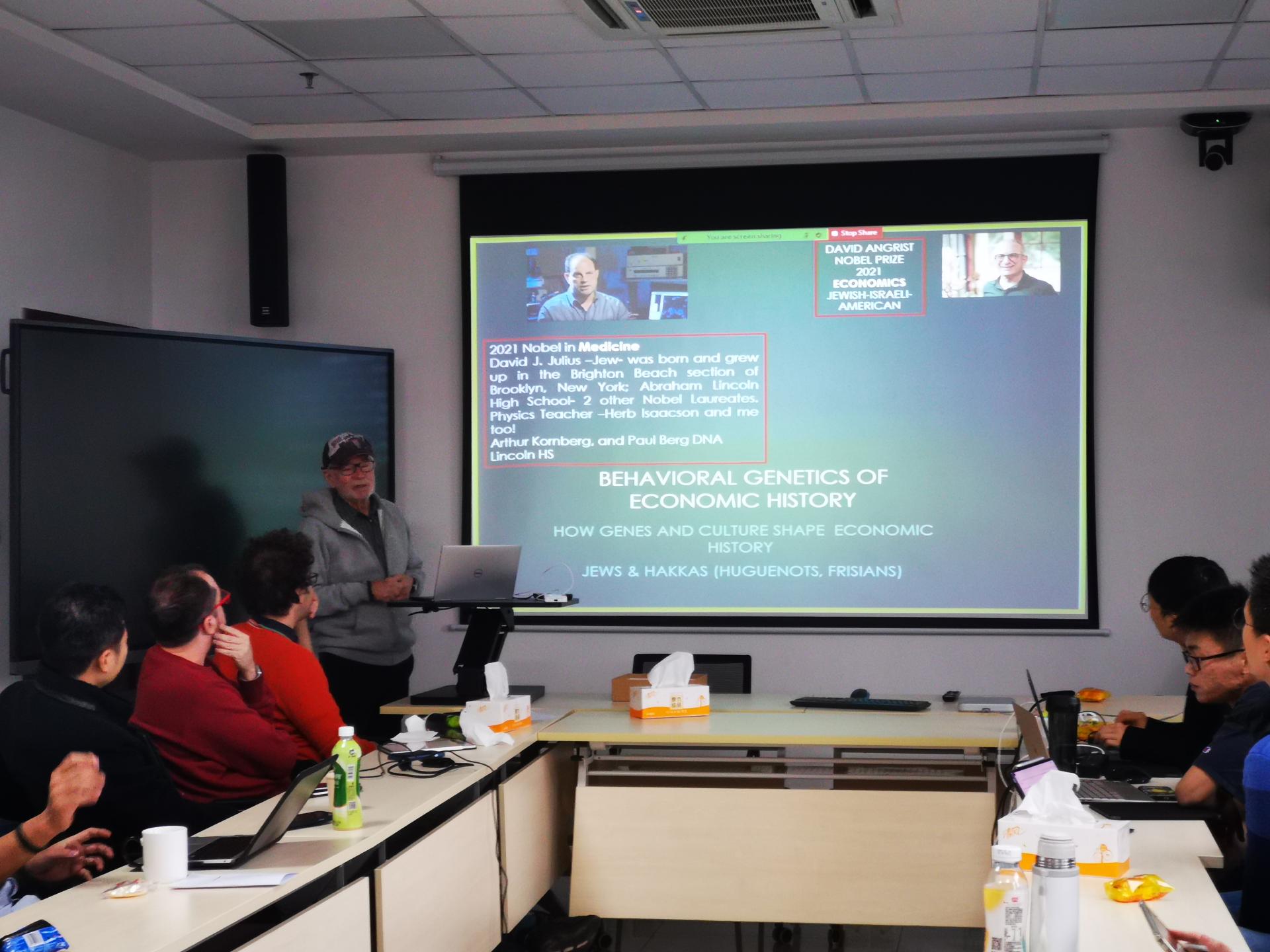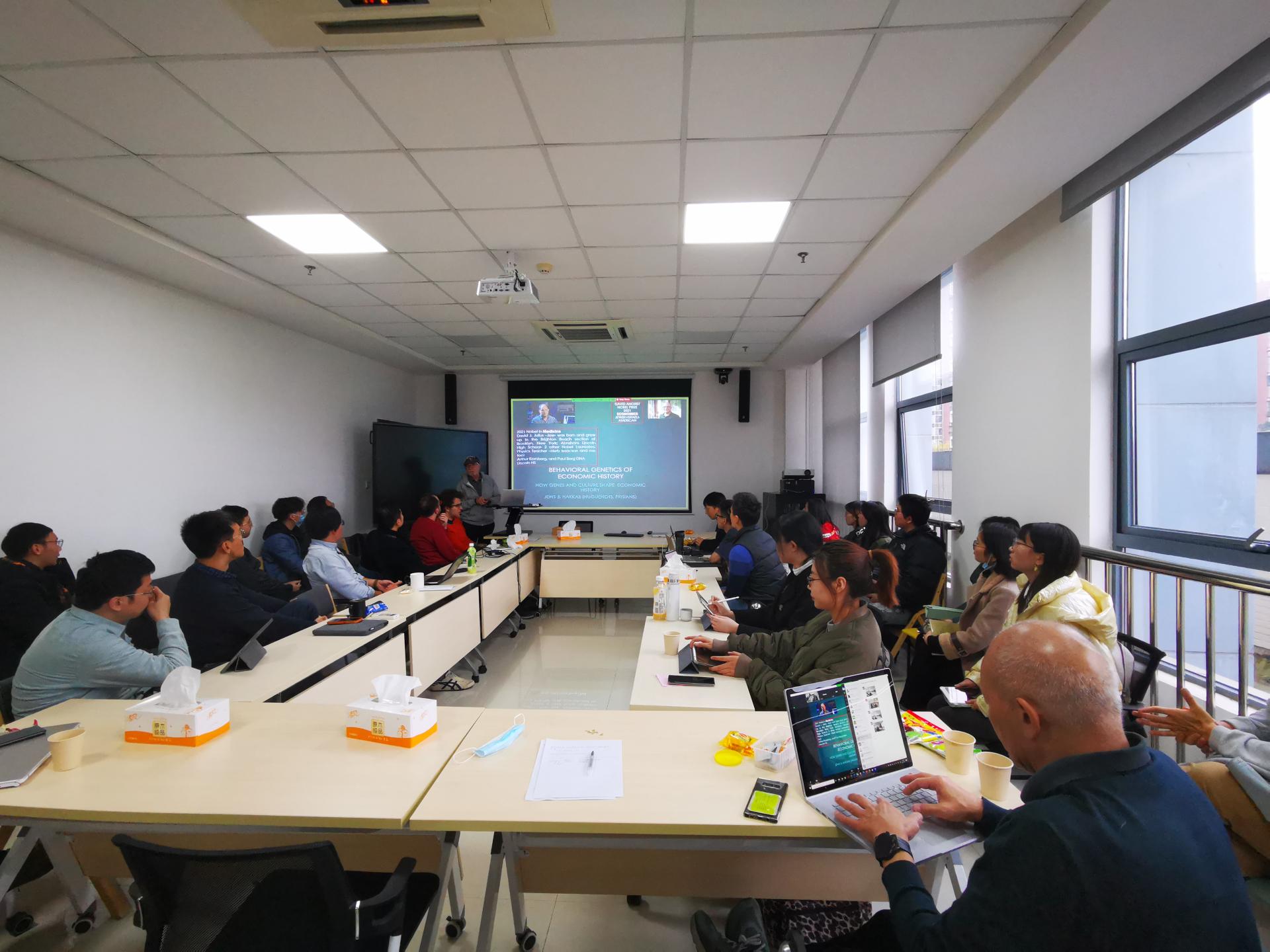时间:2021年11月30日(周二)下午3:45-下午4:30
主讲人:行为中心,Richard Ebstein
题目:Behavioural Generics of Economic History
地点:弘远楼3楼311室
内容提要:
Little or no emphasis has focused on ethnogenetic contributions to shaping national and regional economic histories. This mini-series of lectures aims to correct this oversight and focus attention on the extra value accorded by incorporating a behavioral genetic perspective towards a deeper understanding of the socio-demographic context underpinning salient economic events especially the rise of capitalism and market economies in Europe and more recently the Four Asian Tigers as well as China’s economic miracle evidenced by the world's fastest-growing major economy, with growth rates averaging 10% over 30 years. We first discuss the Jewish people inter alia as an example of this ethnogenetic perspective vis à-vis economic history. Although the Jews are a minority recognized for their cognitive, entrepreneurial skills they are not unique. Other groups, whose culture along with a peculiar genetic history provided them with finely-honed talents that positioned them as a recognizable in-group to contribute to the advancement of the arts, science and economic development of the countries to where they emigrated. These groups that share similar characteristics with the Jews are discussed in this mini-lecture series and include the Catalonians (Spain), Frisians (Holland, N. Germany), Huguenots (France) and the Hakkas (China). In this miniseries of lectures, we discuss the ethnogenetic story of the Jews and other groups, especially the Hakkas (a Han Chinese sub-group), and economic history. Because the Hakkas have sometimes faced persecution and had to relocate often, some historians have dubbed them "China’s Jews." And like Jews, they’re regarded as frugal hard workers and excellent students. We evaluate the hypothesis, arising from considerable evidence, that the remarkable achievement of the Jews, Hakkas and other such groups may be traceable to gene-culture co-evolution (G x C) that endowed such groups with on average greater cognitive skills, especially their capacity to assimilate suggestions, recommendations, persuasion and information from surrounding cultures that explains their often leading role, in economic development and entrepreneurship.
在塑造国家和地区经济历史方面,很少或根本没有强调民族遗传学的贡献。这个小型系列讲座旨在纠正这一疏忽,并将注意力集中在将行为遗传学的观点纳入到对社会人口背景的深入理解上,以支持突出的经济事件,特别是资本主义和市场经济在欧洲的崛起,以及最近的亚洲四小龙和中国的经济奇迹,中国是世界上增长最快的主要经济体,30年来的平均增长率为10%。我们首先讨论犹太民族,作为这种民族遗传学观点在经济史上的一个例子。尽管犹太人是一个因其认知能力和创业技能而被认可的少数民族,但他们并不是独一无二的。其他群体,他们的文化和特殊的遗传历史为他们提供了精良的人才,使他们成为一个可识别的群体,为他们移居的国家的艺术、科学和经济发展的进步作出贡献。本迷你讲座系列讨论了这些与犹太人有相似特征的群体,包括加泰罗尼亚人(西班牙)、弗里斯兰人(荷兰、德国北部)、胡格诺人(法国)和客家人(中国)。在这个迷你系列讲座中,我们讨论了犹太人和其他群体的民族遗传故事,特别是客家人(汉族的一个子群体),以及经济历史。由于客家人有时面临迫害,不得不经常搬迁,一些历史学家称他们为"中国的犹太人"。和犹太人一样,他们被认为是节俭的勤劳者和优秀的学生。我们评估了由大量证据产生的假设,即犹太人、客家人和其他这类群体的显著成就可能可追溯到基因-文化共同进化(G x C),这种进化赋予这类群体平均更大的认知技能,特别是他们吸收来自周围文化的建议、推荐、劝说和信息的能力,这说明他们在经济发展和创业方面经常发挥领导作用。


